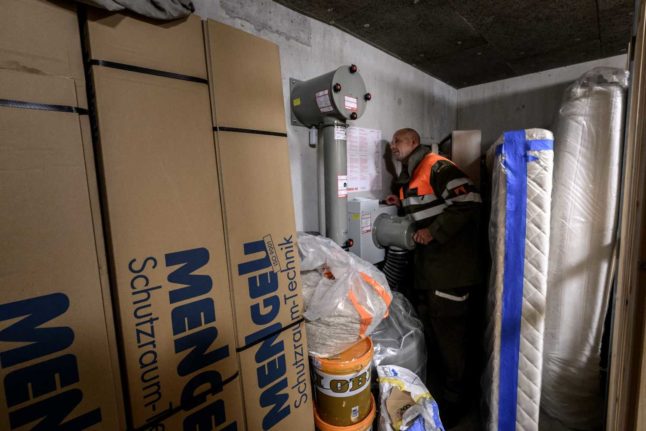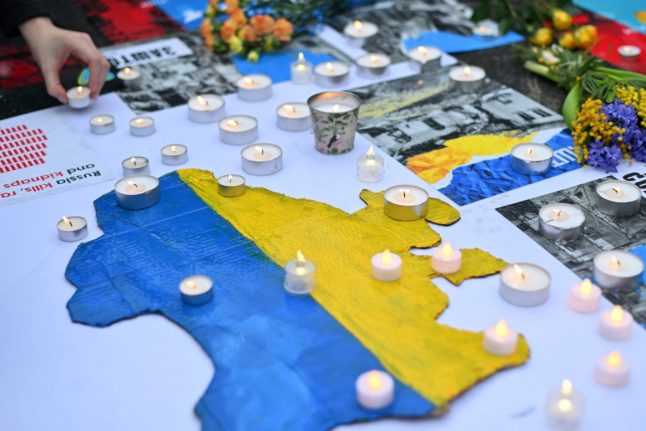Residents of Switzerland or even visitors will have noticed the yellow nuclear shelter signs that dot the country’s homes and buildings.
This is not only due to a Swiss sense of preparation and pragmatism, but actually has its origins in a law which mandated nuclear shelters across the country (discussed below).
In the six weeks since Russia invaded Ukraine, companies have reported a dramatic increase in enquiries and requests for nuclear shelters to be built or renovated.
Reader question: Where is my nearest nuclear shelter in Switzerland?
Swiss news outlet 20 Minutes reports that companies have been “overwhelmed with enquiries”.
Mengeu AG, a shelter company in the canton of Zurich, told 20 Minutes there had been a “massive increase” since the start of the war, with customers wanting to make sure their shelters are ready and effective should they be needed.
“People notice that they have a shelter in the house and want to have it repaired so that it would be ready to move into again in an emergency,” Managing Director Christoph Singer told 20 Minutes.
“But some customers also wanted to know what they would have to take with them to the shelter and whether they could take their pets with them,” says Singer.
Thomas Kull, who heads up shelter company Lunor, said people want to know if their shelters have any defects.
“Many of these small shelters in single-family homes were built in the 1960s to 1980s and are therefore 40 to 60 years old. From a technical point of view, these systems have reached the end of their lifetime.”
READ MORE: Inside Switzerland’s largest nuclear bunker – 40 years on
A result was a surge in demand for raw materials, some of which came from areas now swept up in the war.
“In addition to the already tense situation due to the corona pandemic, we now need raw materials in Europe that were previously supplied from Ukraine and/or Russia.”
Liliane Staub, from G. Bühler GmbH in Bern, said the war had led to a dramatic change in attitudes.
“Just a month ago we were smiled at during the shelter checks. Now people are beating down our doors” she told 20 Minutes.
What are the rules for nuclear shelters in Switzerland?
50 years ago, at the height of the Cold War, the government saw nuclear war and invasion as possible scenarios — so much so, that it passed a legislation in 1963 requiring nuclear shelters in all residential buildings.
They were to be used “during an armed conflict, especially one involving weapons of mass destruction”, according to the Federal Office of Civil Protection (FOCP), which added that these bunkers “provide a basic form of protection against a wide range of direct and indirect arms impact”.
READ MORE: What are Switzerland’s nuclear bunkers and does each home need one?
At present these structures are no longer compulsory in single-family houses, though the law stipulates that each resident “should be guaranteed a shelter in the vicinity of her/his place of residence”.
Today, Switzerland has 360,000 communal shelters able to accommodate the entire population in case of need.



 Please whitelist us to continue reading.
Please whitelist us to continue reading.
Member comments